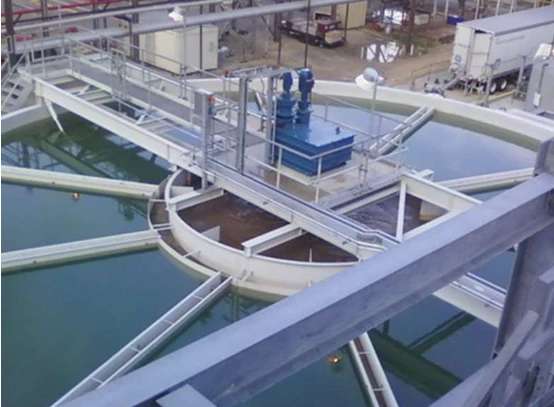
-
 Afrikaans
Afrikaans -
 Albanian
Albanian -
 Amharic
Amharic -
 Arabic
Arabic -
 Armenian
Armenian -
 Azerbaijani
Azerbaijani -
 Basque
Basque -
 Belarusian
Belarusian -
 Bengali
Bengali -
 Bosnian
Bosnian -
 Bulgarian
Bulgarian -
 Catalan
Catalan -
 Cebuano
Cebuano -
 China
China -
 China (Taiwan)
China (Taiwan) -
 Corsican
Corsican -
 Croatian
Croatian -
 Czech
Czech -
 Danish
Danish -
 Dutch
Dutch -
 English
English -
 Esperanto
Esperanto -
 Estonian
Estonian -
 Finnish
Finnish -
 French
French -
 Frisian
Frisian -
 Galician
Galician -
 Georgian
Georgian -
 German
German -
 Greek
Greek -
 Gujarati
Gujarati -
 Haitian Creole
Haitian Creole -
 hausa
hausa -
 hawaiian
hawaiian -
 Hebrew
Hebrew -
 Hindi
Hindi -
 Miao
Miao -
 Hungarian
Hungarian -
 Icelandic
Icelandic -
 igbo
igbo -
 Indonesian
Indonesian -
 irish
irish -
 Italian
Italian -
 Japanese
Japanese -
 Javanese
Javanese -
 Kannada
Kannada -
 kazakh
kazakh -
 Khmer
Khmer -
 Rwandese
Rwandese -
 Korean
Korean -
 Kurdish
Kurdish -
 Kyrgyz
Kyrgyz -
 Lao
Lao -
 Latin
Latin -
 Latvian
Latvian -
 Lithuanian
Lithuanian -
 Luxembourgish
Luxembourgish -
 Macedonian
Macedonian -
 Malgashi
Malgashi -
 Malay
Malay -
 Malayalam
Malayalam -
 Maltese
Maltese -
 Maori
Maori -
 Marathi
Marathi -
 Mongolian
Mongolian -
 Myanmar
Myanmar -
 Nepali
Nepali -
 Norwegian
Norwegian -
 Norwegian
Norwegian -
 Occitan
Occitan -
 Pashto
Pashto -
 Persian
Persian -
 Polish
Polish -
 Portuguese
Portuguese -
 Punjabi
Punjabi -
 Romanian
Romanian -
 Russian
Russian -
 Samoan
Samoan -
 Scottish Gaelic
Scottish Gaelic -
 Serbian
Serbian -
 Sesotho
Sesotho -
 Shona
Shona -
 Sindhi
Sindhi -
 Sinhala
Sinhala -
 Slovak
Slovak -
 Slovenian
Slovenian -
 Somali
Somali -
 Spanish
Spanish -
 Sundanese
Sundanese -
 Swahili
Swahili -
 Swedish
Swedish -
 Tagalog
Tagalog -
 Tajik
Tajik -
 Tamil
Tamil -
 Tatar
Tatar -
 Telugu
Telugu -
 Thai
Thai -
 Turkish
Turkish -
 Turkmen
Turkmen -
 Ukrainian
Ukrainian -
 Urdu
Urdu -
 Uighur
Uighur -
 Uzbek
Uzbek -
 Vietnamese
Vietnamese -
 Welsh
Welsh -
 Bantu
Bantu -
 Yiddish
Yiddish -
 Yoruba
Yoruba -
 Zulu
Zulu
Durable PVC and FRP Pipe Options for Industrial Applications
Understanding the Benefits of PVC and FRP Pipes
In recent years, the demand for effective and durable piping systems has increased significantly across various industries. The use of PVC (Polyvinyl Chloride) and FRP (Fiber Reinforced Plastic) pipes has emerged as a popular choice owing to their unique properties and advantages. This article explores the benefits of using PVC and FRP pipes and their application across different sectors.
What are PVC and FRP Pipes?
PVC pipes are made from a synthetic plastic polymer, known for its durability and resistance to corrosion and chemicals. They are widely used in plumbing, drainage, and irrigation systems due to their strength and lightweight nature. On the other hand, FRP pipes are composite materials made by embedding glass fibers in plastic resins. This combination results in pipes with exceptional strength-to-weight ratios, making them ideal for various industrial applications.
Advantages of PVC Pipes
1. Corrosion Resistance One of the most significant benefits of PVC pipes is their resistance to chemical corrosion. Unlike metal pipes which can rust and degrade over time, PVC can withstand a variety of acids, bases, and salts, promoting longevity and reducing maintenance costs.
2. Lightweight PVC pipes are easier to handle and install due to their lightweight nature. This reduces transportation and installation costs, making them a cost-effective solution.
3. Cost-Effective Compared to other piping materials, PVC is relatively inexpensive, offering an economical choice for both residential and commercial applications.
4. Smooth Interior Surface The smooth surface of PVC pipes minimizes friction loss and restricts the growth of bacteria, making them an ideal choice for potable water applications.
5. Flexibility in Installation PVC pipes can be easily cut and connected using various fittings, allowing for flexible design options in plumbing and drainage systems.
Advantages of FRP Pipes
1. High Strength-to-Weight Ratio FRP pipes offer a superior strength-to-weight ratio, making them robust yet easy to transport and install. This is particularly beneficial for large-scale installations.
pvc frp pipe

2. High Corrosion Resistance Similar to PVC, FRP pipes are highly resistant to corrosion, even in aggressive environments. This characteristic enables them to retain structural integrity over time, especially in chemical processing industries.
3. Thermal Insulation FRP pipes exhibit excellent thermal insulation properties, which further enhances their efficiency in carrying hot or cold fluids without significant heat loss.
4. Design Versatility FRP materials can be molded into various shapes and sizes, making it easier to create custom products that meet specific industry requirements.
5. Low Maintenance The durability and resistance to corrosion and fouling contribute to lower maintenance requirements for FRP pipes, reducing operational costs for businesses.
Applications of PVC and FRP Pipes
Both PVC and FRP pipes find extensive applications in various sectors
- Municipal Water Supply PVC pipes are extensively used for drinking water supply systems due to their safety and reliability. FRP pipes are also popular in this sector, especially for pipeline systems that transport treated water.
- Chemical Industry The chemical industry benefits from both types of pipes, with FRP pipes being preferred for handling aggressive chemicals due to their superior resistance.
- Irrigation Systems PVC pipes are commonly used in agriculture for irrigation systems, ensuring efficient water distribution.
- Oil and Gas FRP pipes are used in the oil and gas sector for transporting fluids due to their durability and ability to withstand harsh environments.
Conclusion
The choice between PVC and FRP pipes largely depends on the specific requirements of the project. Both types of piping systems offer significant advantages, making them suitable for a wide range of applications. Understanding the unique properties of each can help industries make informed decisions for their piping needs, leading to enhanced efficiency, lower costs, and improved safety. As industries continue to evolve, the demand for reliable and cost-effective piping solutions like PVC and FRP is likely to increase.









